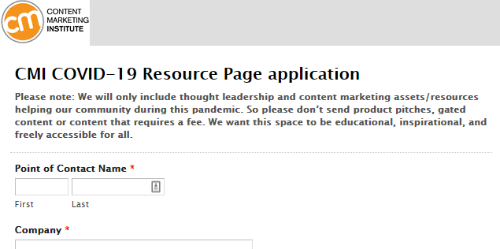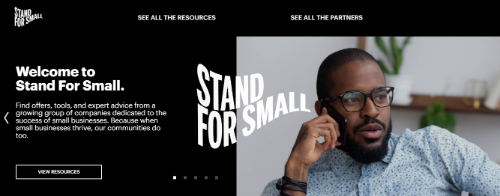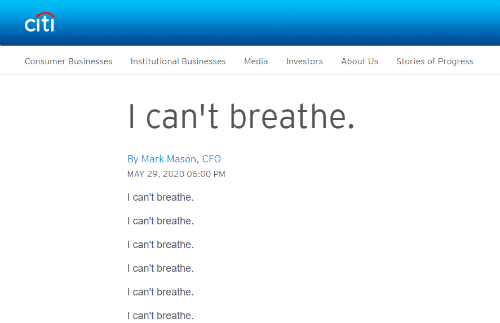
 In his recently published eBook, Corona Marketing, Joe Pulizzi recounts how he and his wife launched the website Content Marketing Institute in 2007 at the exact time as a devastating financial crisis was beginning to unfold in the United States. “At the time, we believed things couldn’t have been bleaker,” Pulizzi writes. “Looking back though, this was absolutely the best time for my wife and I to start a business.” Why is that? Because their commitment to providing useful, helpful and relevant content – even at a time where it was difficult to drive direct revenue with that content – paid major dividends as the market recovered. “When we were starting to come out of the recession in 2010, Content Marketing Institute quickly became the leading resource for content marketing education, not because we had some secret sauce, but simply because we invested in our audience for two years when everyone else went silent (or went out of business).” Even when times are difficult, professional audiences still look to people and brands they trust for guidance, information, and entertainment; in fact, one might argue especially when times are difficult. And as we're said on this blog before, that continued search for solutions means the work of marketing doesn't stop. The challenges our world now faces with the coronavirus pandemic and social justice movement create a unique opportunity for B2B content marketing to make an impact, even relative to other recessions and crises we’ve faced in the past. Here’s why.
In his recently published eBook, Corona Marketing, Joe Pulizzi recounts how he and his wife launched the website Content Marketing Institute in 2007 at the exact time as a devastating financial crisis was beginning to unfold in the United States. “At the time, we believed things couldn’t have been bleaker,” Pulizzi writes. “Looking back though, this was absolutely the best time for my wife and I to start a business.” Why is that? Because their commitment to providing useful, helpful and relevant content – even at a time where it was difficult to drive direct revenue with that content – paid major dividends as the market recovered. “When we were starting to come out of the recession in 2010, Content Marketing Institute quickly became the leading resource for content marketing education, not because we had some secret sauce, but simply because we invested in our audience for two years when everyone else went silent (or went out of business).” Even when times are difficult, professional audiences still look to people and brands they trust for guidance, information, and entertainment; in fact, one might argue especially when times are difficult. And as we're said on this blog before, that continued search for solutions means the work of marketing doesn't stop. The challenges our world now faces with the coronavirus pandemic and social justice movement create a unique opportunity for B2B content marketing to make an impact, even relative to other recessions and crises we’ve faced in the past. Here’s why.
The Vital Role of B2B Content Marketing Right Now
In an increasingly customer-centric business sphere, content marketing has become a virtually omnipresent tactic for two primary reasons:- It’s cost-effective at a time where budgets and ROI equations everywhere are closely reviewed and scrutinized.
- It’s non-pushy at a time where customers are increasingly resistant to interruptive, promotional messaging.
3 Examples of Exceptional B2B Content Marketing During the Crisis
Content Marketing Institute: COVID-19 Resource Hub Since we mentioned Mr. Pulizzi and CMI earlier, they’re a fitting example to start with. The COVID-19 Content Marketing Resources page on CMI’s site is full of free, neatly organized, and continually updated resources for brands and practitioners. Not only does CMI’s staff curate these articles and assets on their own, but they invite their community to contribute findings as well – while being crystal clear on the submission form about the purpose of these resources: “educational, inspirational, and freely accessible for all.” American Express: Stand for Small
Since we mentioned Mr. Pulizzi and CMI earlier, they’re a fitting example to start with. The COVID-19 Content Marketing Resources page on CMI’s site is full of free, neatly organized, and continually updated resources for brands and practitioners. Not only does CMI’s staff curate these articles and assets on their own, but they invite their community to contribute findings as well – while being crystal clear on the submission form about the purpose of these resources: “educational, inspirational, and freely accessible for all.” American Express: Stand for Small  Stand for Small is another example of an excellent resource hub directed at a distinct subset of professionals. In this case, American Express partnered with numerous other organizations to compile helpful information and guidance for small businesses, which are feeling the brunt of COVID-19 and its economic impact as much as anyone. American Express’ branding is minimal throughout the site. With tons of other big-name brands participating, this is an impressively collaborative effort. Stand for Small’s homepage states that “when small businesses thrive, our communities do too.” Unstated is that when small businesses thrive, American Express does too. But there’s nothing cynical about that because both things can be true. When content is able to find purpose in something that’s beneficial for your company AND beneficial for society in a deeper way, you’re doing it right. Citigroup: Executive Thought Leadership
Stand for Small is another example of an excellent resource hub directed at a distinct subset of professionals. In this case, American Express partnered with numerous other organizations to compile helpful information and guidance for small businesses, which are feeling the brunt of COVID-19 and its economic impact as much as anyone. American Express’ branding is minimal throughout the site. With tons of other big-name brands participating, this is an impressively collaborative effort. Stand for Small’s homepage states that “when small businesses thrive, our communities do too.” Unstated is that when small businesses thrive, American Express does too. But there’s nothing cynical about that because both things can be true. When content is able to find purpose in something that’s beneficial for your company AND beneficial for society in a deeper way, you’re doing it right. Citigroup: Executive Thought Leadership  While there is a time and place for brands to speak as entities, it’s usually more powerful for leaders within the company to speak up, putting a human face and heart behind the sentiments. One example is a post on Citigroup’s blog from Chief Financial Officer Mark Mason, which opens with a haunting reference to George Floyd’s last words, and closes with an urge for others to join the fight against racial injustice. This was a hard-hitting message, and one that will stick with me when I think about Citi’s brand in the future. Importantly, the comments section was left open on the post, enabling (mostly respectful and grateful) dialogue. Even more so than pandemic-related topics, this represents precarious ground for B2B brands, with political activism being a controversial subject. But there’s the thing: Mark’s post isn’t political. There’s nothing inherently political about condemning George Floyd’s murder, or calling attention to the systemic issue it reflects, or saying “Black Lives Matter.” The more we can normalize these messages through corporate-backed statements like this one, the more we can stop acting like advocating for social justice is political, or hazardous for brands with prominent voices and an ability to effect change.
While there is a time and place for brands to speak as entities, it’s usually more powerful for leaders within the company to speak up, putting a human face and heart behind the sentiments. One example is a post on Citigroup’s blog from Chief Financial Officer Mark Mason, which opens with a haunting reference to George Floyd’s last words, and closes with an urge for others to join the fight against racial injustice. This was a hard-hitting message, and one that will stick with me when I think about Citi’s brand in the future. Importantly, the comments section was left open on the post, enabling (mostly respectful and grateful) dialogue. Even more so than pandemic-related topics, this represents precarious ground for B2B brands, with political activism being a controversial subject. But there’s the thing: Mark’s post isn’t political. There’s nothing inherently political about condemning George Floyd’s murder, or calling attention to the systemic issue it reflects, or saying “Black Lives Matter.” The more we can normalize these messages through corporate-backed statements like this one, the more we can stop acting like advocating for social justice is political, or hazardous for brands with prominent voices and an ability to effect change.
Invest in Your Audience
In many ways, content marketing was built for moments like this. It’s about developing relationships without treating the sale as a be-all, end-all. It’s about establishing what your brand stands for beyond the products or services it offers. It’s about investing in your audience rather than simply expecting your audience to invest in you. I’ll close this out by circling back to another quote from Mr. Pulizzi, this one a bit older – drawn from an interview he did with our own Ashley Zeckman five years ago – but as relevant as ever:“I don’t like the idea that marketers only sell and don’t make positive change happen. That’s why I love content marketing. You can increase the bottom line while, at the same time, help your customers live better lives or get better jobs. Content marketing is the only kind of marketing that provides ongoing value, whether you purchase the product or not.”Provide ongoing value, prop up your brand values, and eventually you’ll see plenty of value in return. For more inspiration, check out these five examples of effective B2B content marketing in times of crisis.
The post Why Content Marketing is More Important Than Ever for B2B Brands appeared first on Online Marketing Blog - TopRank®.
from Online Marketing Blog – TopRank® https://ift.tt/3gf4Q8i
via IFTTT
